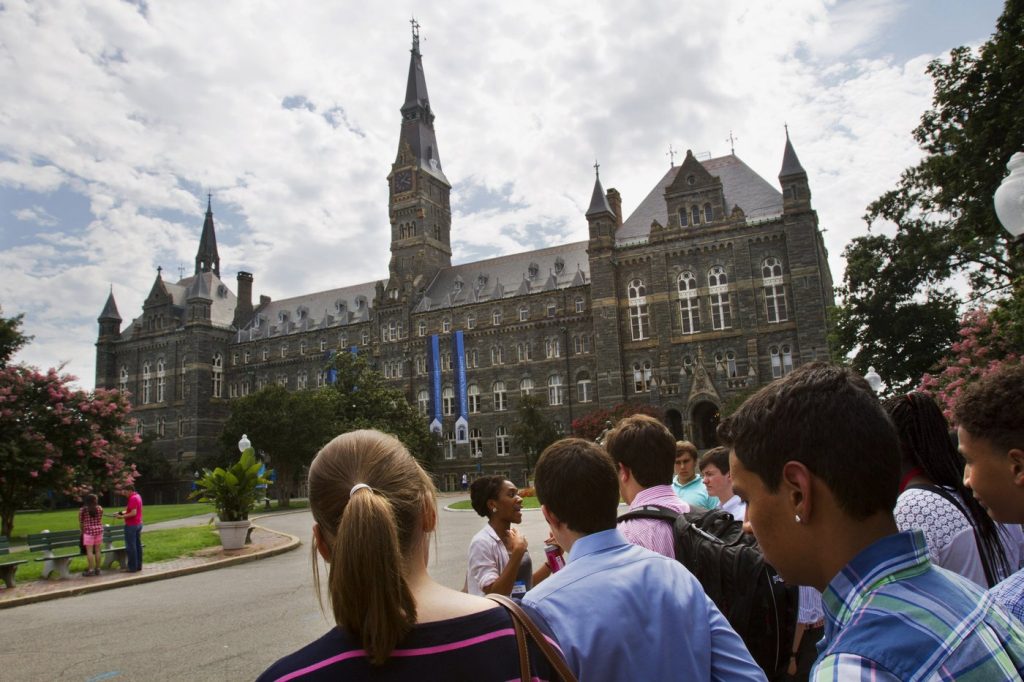Since the decline in international student enrollment during the COVID-19 pandemic, there has been a noticeable rebound in such enrollments in the U.S. This resurgence has brought relief to American universities that depend on the tuition fees from these students. However, with the onset of new political directives under the Trump administration, educators are expressing concerns that this positive trend could be at risk.
International students already present in the U.S. are increasingly feeling insecure due to the government's efforts to deport students based on their political opinions. A Ph.D. student from South Asia studying at the University of Rochester expressed that she feels unsafe discussing LGBTQ+ issues openly or participating in political demonstrations. Growing apprehensions surrounding potential travel bans have also made her hesitant to return home for the summer, fearing she may not be allowed back into the U.S.
“You’re here for an education, so you’ve got to keep moving forward on that end,” the student said, speaking anonymously to avoid drawing unwanted attention from authorities. “But it is very hard to zone out and not think about what’s happening in the news.”
As the U.S. government tightens immigration regulations, which includes reducing federal research funding and increasing surveillance on campus activism, foreign students are left in a state of uncertainty regarding visa approvals, travel arrangements, and academic pursuits. Clay Harmon, executive director of the American International Recruitment Council (AIRC), noted that these pressures create a cumulative sense that the U.S. is becoming less inviting for international students.
During a recent trip to India, which is the largest source of international students for the U.S., recruiting agencies reported a significant decline in the interest from Indian students toward American colleges compared to previous years. Many students are opting to wait for clarity on these policy shifts, while some have even deferred their admission offers for fall 2025.
Social media platforms like Reddit have become hubs for international students from Canada, China, India, and other countries seeking guidance on their options in light of the U.S. political situation. Some are contemplating whether to pursue their education in the United States or explore opportunities in countries like the United Kingdom or Germany, where they might feel more secure.
International students contribute significantly to the U.S. economy, with 1.1 million students enrolled during the 2023-2024 academic year. They added a record $43.8 billion to the economy and supported over 378,000 jobs, as reported by NAFSA, an organization dedicated to promoting international education. In addition to their economic contribution, international graduate students play a vital role in advancing research across various fields.
Fanta Aw, who leads NAFSA, stressed the importance of universities communicating effectively with prospective international students. Despite high-profile cases of detentions, such as those involving a pro-Palestinian activist from Columbia University and another scholar from Georgetown University, Aw highlighted that the vast majority of international students remain in settings where such events are not common. She emphasized the need for universities to reassure prospective students that not all institutions are experiencing these issues.
The institutional response to the evolving political landscape has varied. For example, Northeastern University has established dedicated webpages to keep international students updated on developments, stressing their commitment to being a welcoming environment. Conversely, Bunker Hill Community College has paused its study abroad programs due to concerns about potential travel restrictions. Similarly, Columbia's Graduate School of Journalism has issued warnings to non-citizen students regarding their vulnerability to arrest or deportation.
Brown University has also advised international students and staff to postpone travel plans after a professor was deported to Lebanon despite holding a U.S. visa, following her open support for a controversial political figure.










